
Opinions
20:19, 15-Feb-2018
Analysis: How to regulate bike-sharing in a sharing economy?
Guest commentary by Li Hongchang
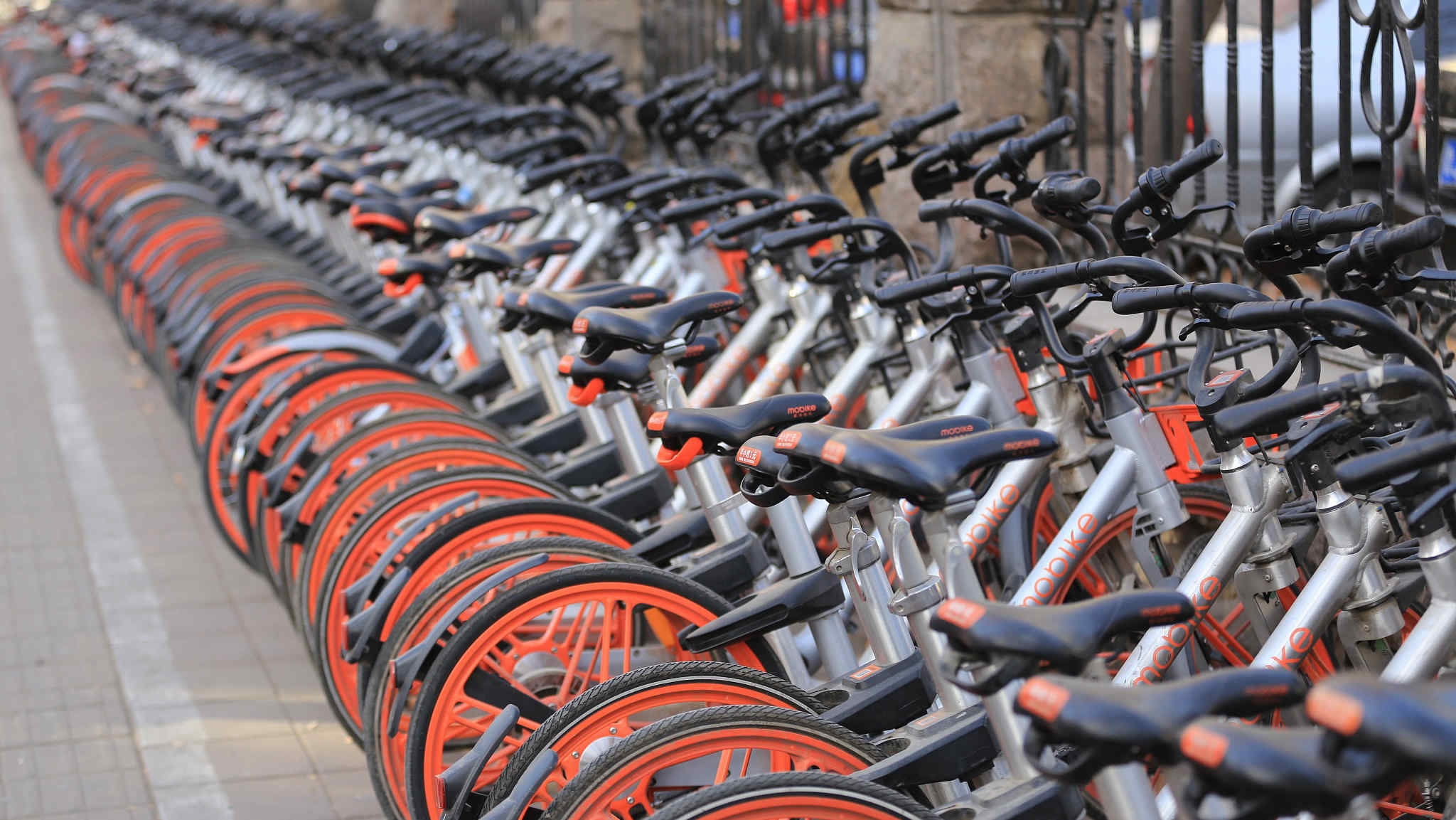
The concept of bike-sharing started from European nations in 1965, but it pedaled slowly to gain global recognition. Policymakers soon realized its potential to enhance urban mobility and reduce carbon footprint.
In the mid-2000s bike-sharing market boomed globally, especially in China. Last year, shared bicycle users reached 220.78 million and traveled a distance of 29.95 billion kilometers reducing the carbon emissions by 6.99 million tons.
The phenomenal growth of shared bikes may have eased mobility and become a panacea to reduce fossil fuel consumption, but there is growing concern over its regulation.
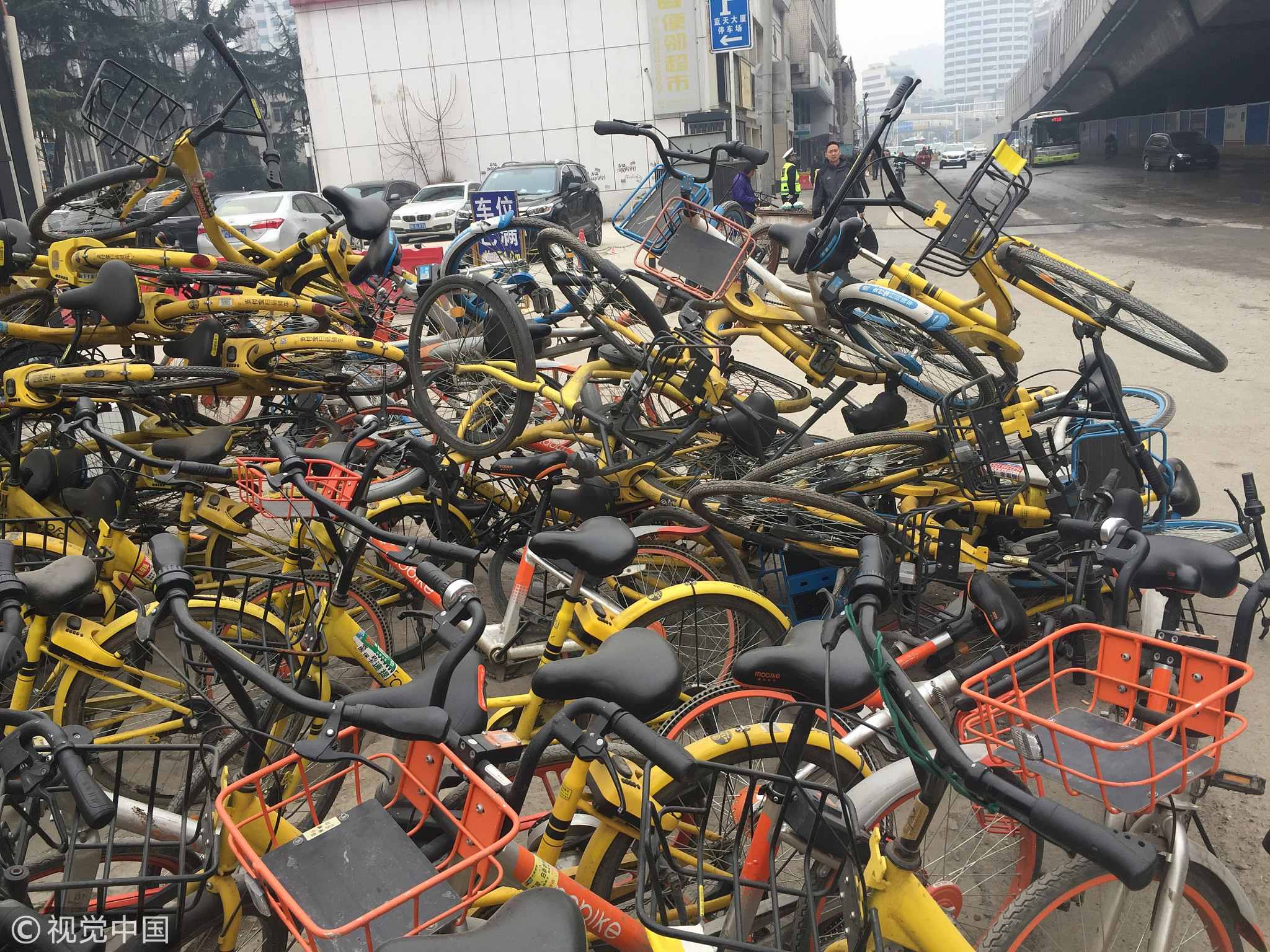
Disorderly parking of shared bikes on the road in Wuhan City, central China's Hubei Province, Feb. 10, 2018. /VCG Photo
Disorderly parking of shared bikes on the road in Wuhan City, central China's Hubei Province, Feb. 10, 2018. /VCG Photo
Regulation problem
Issues of theft, vandalism, and disorderly parking are causing inconvenience to the public. Experts blame people’s behavior behind this chaos.
Shared bike start-ups have their own limitations. They focus primarily on venture capital investment, market-share expansion, competition with their rivals and marketing strategies rather than strengthening their service quality.
Start-ups in their pursuit to make their venture profitable are reluctant to hire extra hands to handle chaotic bicycle parking in public space.
They argue that shortage of open parking space and poorly conceived policies lead to the parking chaos that is also bleeding them financially. Seizure of bikes by municipal authorities or government further multiplies their woes.
There is more to the list of complaints, public transport entities are angry that shared bikes take away a significant share of their passengers, road space and also hinder operations at bus stations.
Estates managements of residential communities are fed up with the disorder, and potential security risks posed by these bikes.
Experts suggest government should formulate smart regulations to resolve these issues and also subsidize bike-sharing start-ups.
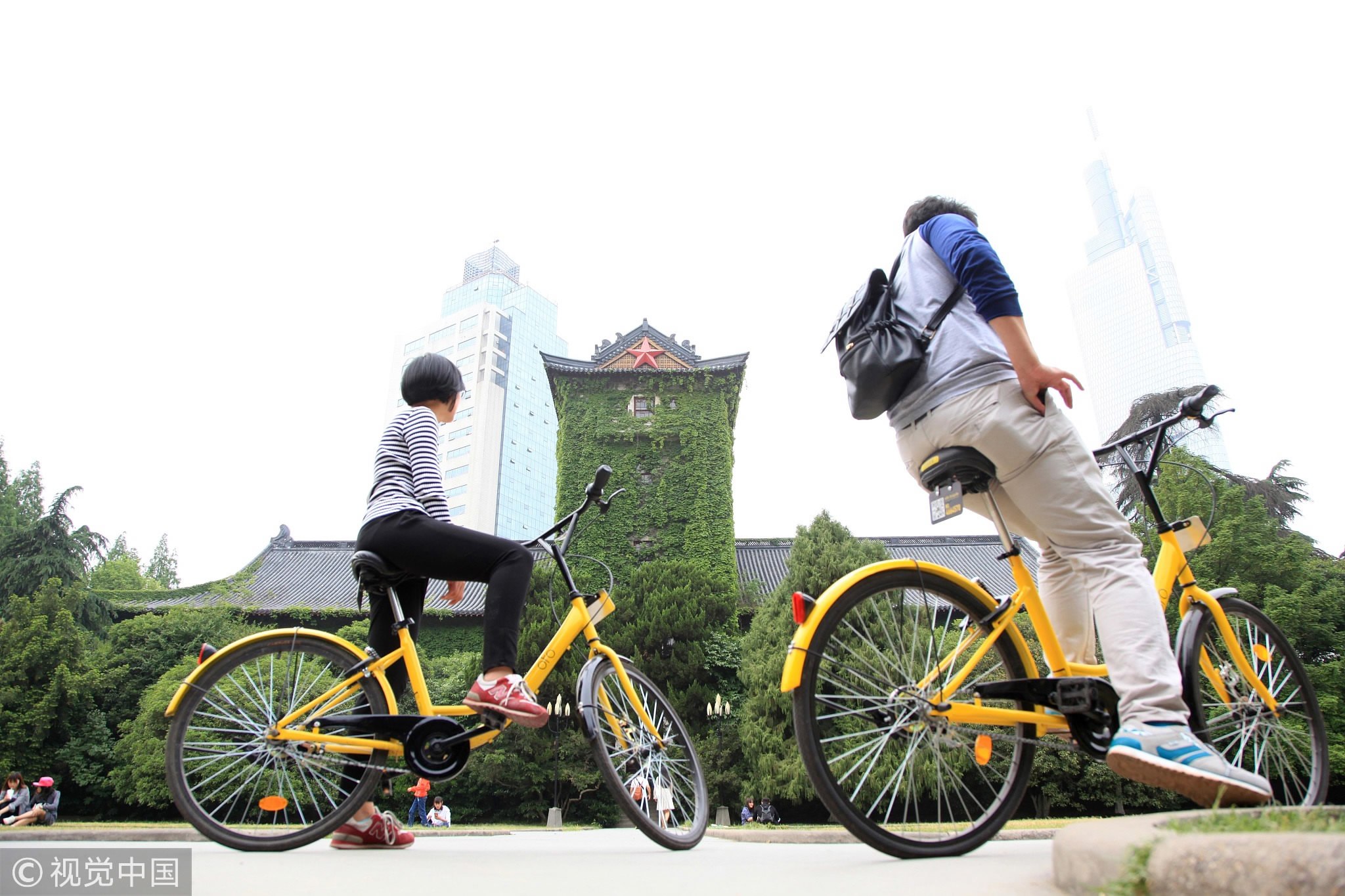
Students riding shared bikes in Nanjing University, in Nanjing City, east China’s Jiangsu Province, May 7, 2017. /VCG Photo
Students riding shared bikes in Nanjing University, in Nanjing City, east China’s Jiangsu Province, May 7, 2017. /VCG Photo
Affirmative regulation to boost urban mobility rather than negative control
Government's regulatory bodies should put forward affirmative regulations to encourage the development of sharing bikes business. These environment-friendly ventures reduce fossil fuel emissions, promote public health, increases public transport ridership, and generate employment in the green sector.
Therefore, favorable economic and technological policies should be formulated to help these businesses flourish rather than imposing substantial financial burdens on them.
These ventures have won global accolades like Mobike won the 2017 Champions of the Earth Award from United Nations for its excellent contribution to low carbon transport.
It is reasonable for a government to share some investment costs with those companies to stimulate economic growth, urban public transport development, and livable cities.
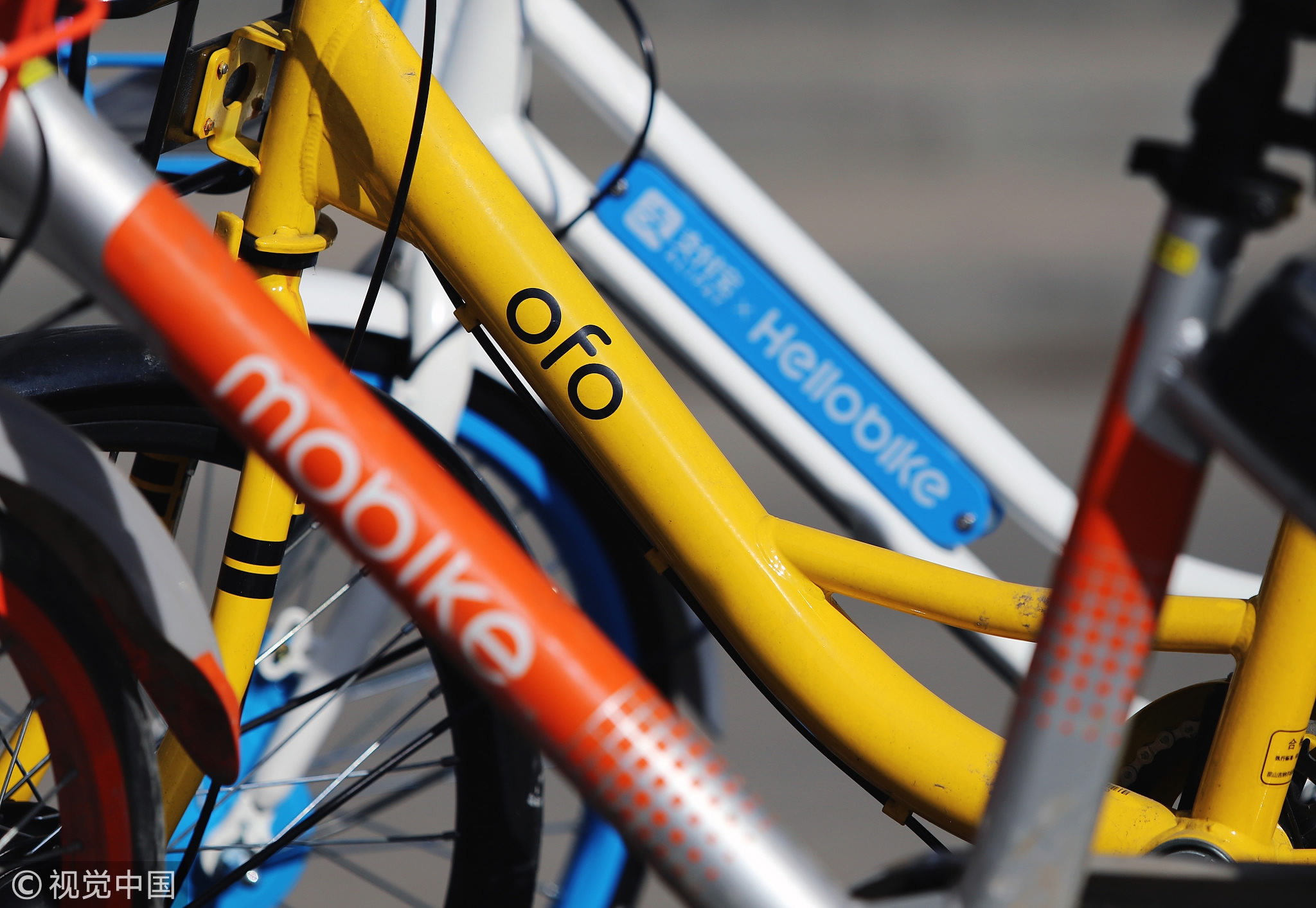
Different brands of shared bikes on the street of Jinan City, east China’s Shandong Province, Feb. 7, 2018. /VCG Photo
Different brands of shared bikes on the street of Jinan City, east China’s Shandong Province, Feb. 7, 2018. /VCG Photo
Fair regulation environment and equal opportunities
Considering the social benefits and high efficiency, the author suggests that government should treat public-operated bike rental companies and private-run bike sharing start-ups in a fair regulatory environment.
Policies regarding investment, operational subsidy, and favorable tax or fiscal measures should be given to Mobike, ofo and other companies in a fair way. All the private and public companies should have equal opportunities and compete to obtain government’s investment and subsidies for public transport.
For example, bike-sharing companies are eligible for public transport subsidies since they contribute to increasing the use of public transport for last mile connectivity.
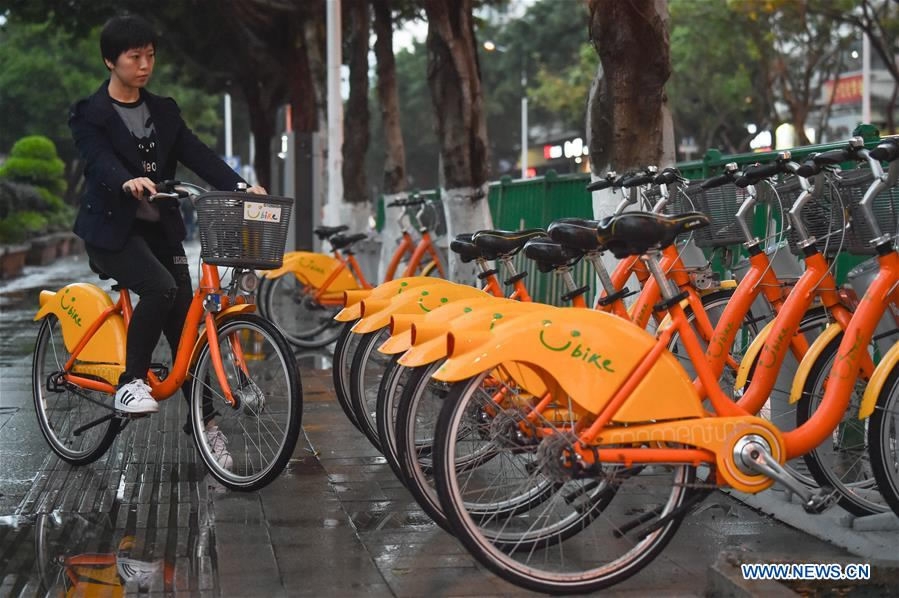
A cyclist returns a bicycle at a station in Quanzhou City, east China's Fujian Province, Dec. 16, 2017. /Xinhua Photo
A cyclist returns a bicycle at a station in Quanzhou City, east China's Fujian Province, Dec. 16, 2017. /Xinhua Photo
Prevention of regional protectionism
It’s worthwhile to note that a few local governments implemented the unfair regulation on shared bike start-ups imposing high operational costs, and bike seizures.
The central government and its subordinate agencies especially National Development and Reform Commission (NDRC), Ministry of Transportation, and other regulatory bodies should ensure fair competition and regulations to build a reasonable, just and transparent market for all stakeholders involved in the bike sharing industry.
(Li Hongchang is an associate professor of Beijing Jiaotong University, and has done a lot of research in transportation economics. The article reflects the author's opinion, and not necessarily the view of CGTN.)

SITEMAP
Copyright © 2018 CGTN. Beijing ICP prepared NO.16065310-3
Copyright © 2018 CGTN. Beijing ICP prepared NO.16065310-3